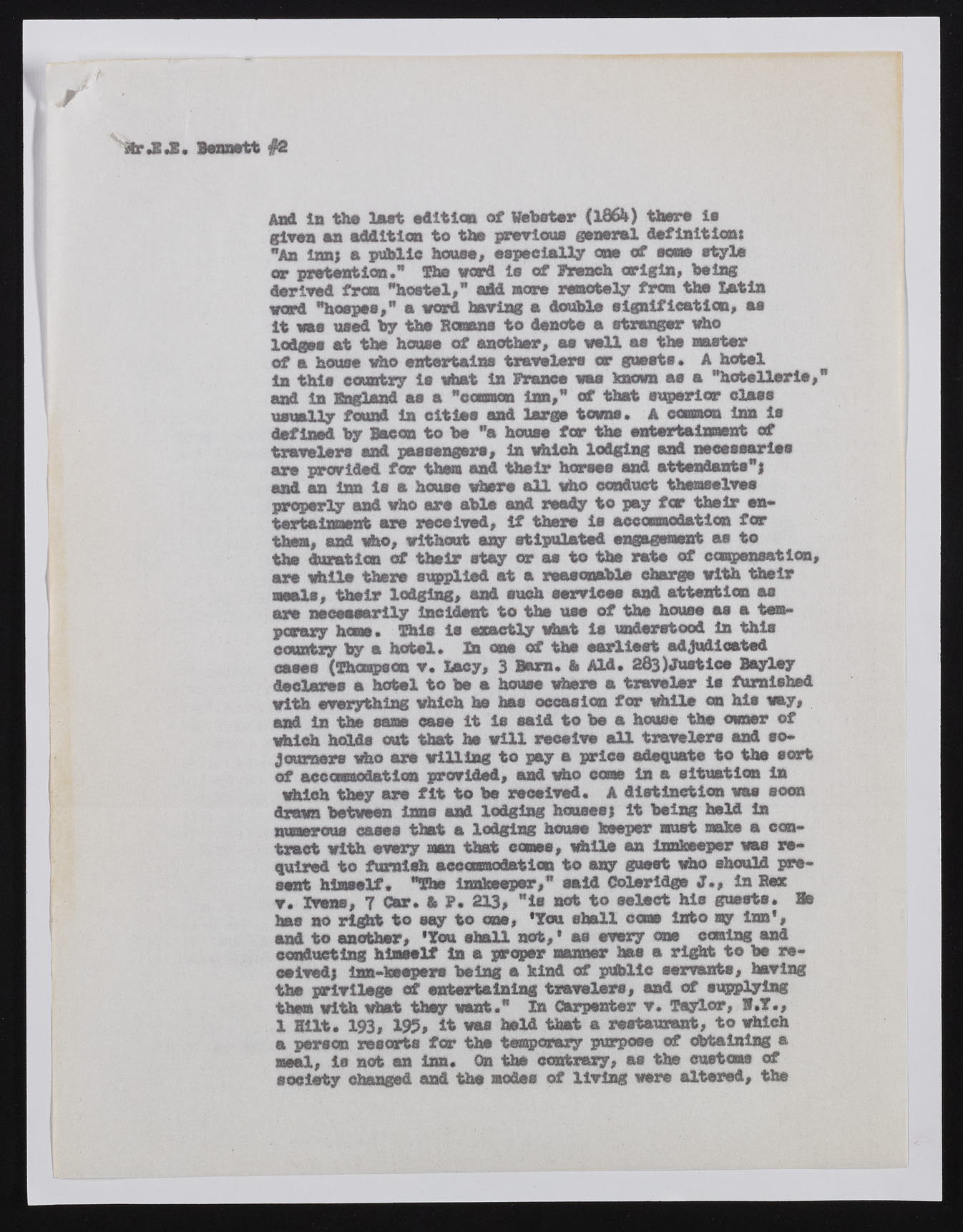Copyright & Fair-use Agreement
UNLV Special Collections provides copies of materials to facilitate private study, scholarship, or research. Material not in the public domain may be used according to fair use of copyrighted materials as defined by copyright law. Please cite us.
Please note that UNLV may not own the copyright to these materials and cannot provide permission to publish or distribute materials when UNLV is not the copyright holder. The user is solely responsible for determining the copyright status of materials and obtaining permission to use material from the copyright holder and for determining whether any permissions relating to any other rights are necessary for the intended use, and for obtaining all required permissions beyond that allowed by fair use.
Read more about our reproduction and use policy.
I agree.Information
Digital ID
Permalink
Details
Member of
More Info
Rights
Digital Provenance
Publisher
Transcription
/ *r&&, Bennett #2 And In the last edition of Webster (1864) there is given an addition to the previous general definition: "An inn) a public house, especially one of sons style or pretention." The word Is of French origin, being derived from "hostel," add more remotely from the Latin word "hoepes," a word haring a double signification, as It was used by the Renans to denote a stranger who lodges at the house of another, ae wen ae the master of a house who entertains travelers or guests* A hotel In this country is what In France wae known as a "hate Her ie," and in England as a "common inn,” of that superior class usually found in cities and large towns. A common Inn it defined by Bacon to be "a house for the entertainment of travelers and passengers, in which lodging and necessaries are provided for then and their horses and attendants"} and an inn is a house where all who conduct themselves properly and who are able and ready to pay for their entertainment are received, if there is accusmodatlcn for them, and who, without any stipulated engagsasat as to the duration of their stay or as to the rate of compensation, are while there supplied at a reasonable charge with their meals, their lodging, and such services and attention as are nfirseen'pfiy incident to the use of the house ae a temporary hose. This Is exactly what la understood in this country by a hotel* In one of the earliest adjudicated cases (Thompson v. Lacy, 3 Barn. A Aid* 283) Just ice Bayley declares a hotel to be a house where a traveler is furnished with everything which he has occasion for while on his way, and in the same ease it is mid to be a house the owner of which holds out that he will receive all travelers and sojourners 1*0 are willing to pay a price adequate to the sort of accommodation provided, and who come In a situation to Which they are fit to be received. A distinction was soon drawn between tons and lodging houses} it being held to numerous cases that a lodging house keeper must make a contract with every men that comes, while an innkeeper was required to furnish accommodation to any guest who should present himself* "The innkeeper," said Coleridge J., to Bex ?* Irens, 7 Car. A P* 213, Mi« not to select hie guests. Be has no right to say to one, *You shall eoae into my inn*, and to another, ‘You shall not,* as every one coming and conducting himself to a proper manner has a right to be received} inn-keepers being a kind of public servants, having the privilege of entertaining travelers, and of supplying them with what they want." In Carpenter v, Taylor, I.Y., 1 lilt, 193, 195, it was held that a restaurant, to which a person resorts for the temporary purpoee of obtaining a meal, la not an ton* On the contrary, as the cue terns of society changed and the modes of living were altered, the

